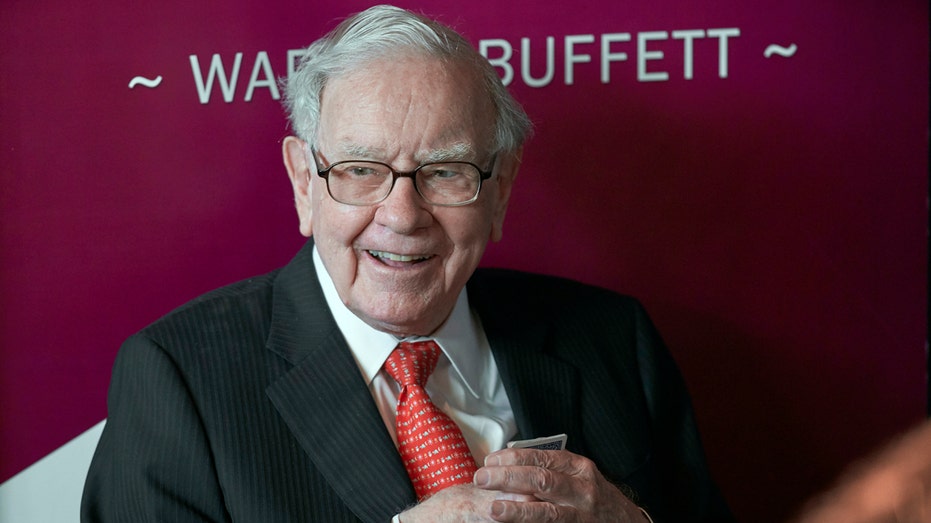What are the different types of stocks?
All shares aren't created equal; here's a guide to some of your choices
At its most basic level, the stock market has a great deal in common with a supermarket.
Not only does it offer a wide variety of products, they come in an array of types, brands, sizes and values. If you're interested in getting in on the longest-running economic expansion in U.S history and a market that may have more room for growth from recent record highs, here's a look at some of the variations you're likely to encounter.
Common vs. preferred shares
Don't let the terms fool you. One isn't necessarily better than the other -- determining which to buy depends on what you want from it. Common stock, as the name suggests, is the bread-and butter version of a company's shares. It's available on the open market, meaning it can be purchased by anyone and is readily accessible on electronic trading platforms like E-trade.
CLICK HERE TO READ MORE ON FOX BUSINESS
Owning a common share entitles the buyer to quarterly dividend payments, if any, and the right to vote on company policy, but owners rank behind both bondholders and preferred shareholders in recovery rights if the company fails.
Preferred shares typically come without the voting power of common shares, though their dividends are fixed for the life of the stock, unlike those for common stockholders, which are subject to change by the company's board. The dividends are also paid before those on common shares.
Stocks In This Article:
Additionally, preferred stock doesn't always offer the open-ended ownership that common stock affords. It may be redeemable, meaning the company has the right to repurchase the shares when they reach a specified price, or convertible, which affords the owner the option of converting preferred shares to voting shares at a specified price point or after an agreed-upon time.

(AP Photo/Nati Harnik)
Billionaire investor Warren Buffett, for example, benefitted from the protections afforded to preferred shareholders when he bought $5 billion of such shares in the investment bank Goldman Sachs during the height of the financial crisis, boosting both market confidence and the bank's balance sheet. Goldman redeemed them less than three years later, paying a one-time dividend of $500 million.
Share classes
Dual-class structures have drawn increasing scrutiny in recent years, since they leave common shareholders with less input into how a company is run.
Businesses from Facebook to the New York Times often use such structures to ensure that founders or their families retain control. At the Times, Class B shares held by a family trust give the descendants of Adolph Ochs, who bought the paper in 1896, the power to elect 70 percent of the company's board -- a setup that let it fight off activist investors as competing news organizations scaled back coverage and laid off staff over the past two decades.
| Ticker | Security | Last | Change | Change % |
|---|---|---|---|---|
| FB | PROSHARES TRUST S&P 500 DYNAMIC BUFFER ETF | 42.42 | +0.35 | +0.84% |
| NYT | THE NEW YORK TIMES CO. | 68.11 | -1.00 | -1.45% |
Mark Zuckerberg controls 53 percent of Facebook, the company he founded while still a student at Harvard, thanks to a dual-class structure that gives Class B shares 10 votes each, compared with the single vote afforded to Class A shares sold on the open market. Zuckerberg owns almost 81 percent of the Class B shares.

Facebook CEO Mark Zuckerberg testifies before a joint hearing of the Commerce and Judiciary committees in Washington in April 2018. (AP Photo/Carolyn Kaster)
That enables him to resist pressure from shareholders, such as the state and local governments that urged him to relinquish the role of board chairman after data breaches disclosed in 2018 and misuse of the social media platform by Russian operatives during the 2016 election.
ZUCKERBERG: FACEBOOK SOMEWHERE BETWEEN MEDIA COMPANIES AND TELECOMS
Stock options
In addition to buying shares, investors seeking to profit off beliefs that share prices will rise or fall can purchase stock options.
Call options give buyers the right to buy a stock at a specified price, while put options confer the right to sell it. Call options are typically used when a stock's market value has exceeded the so-called strike price and sell options when market value has tumbled below the strike price. Both are void if not exercised before their expiration dates, and the option seller pockets the original payment.
GET FOX BUSINESS ON THE GO BY CLICKING HERE




















